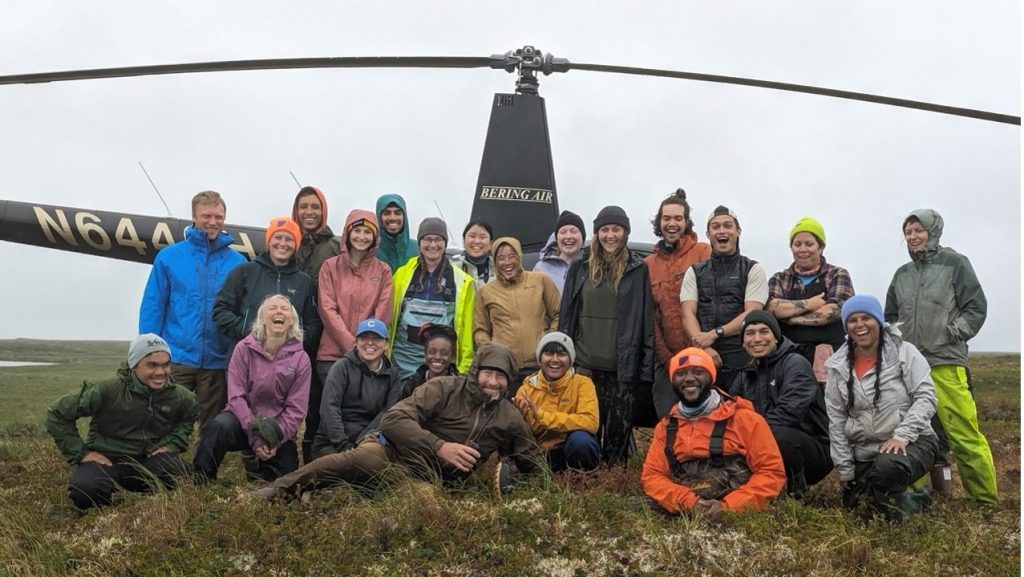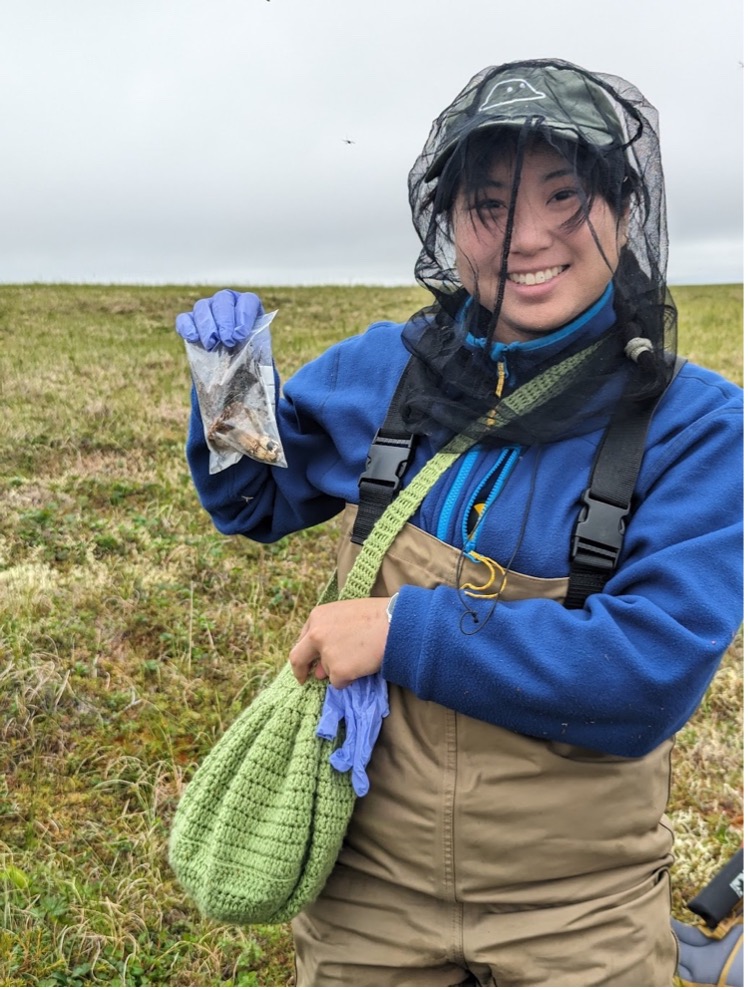By Freja Cini
Mandala Pham is a double major undergraduate student at The University of Texas at Austin, where she studies geophysics at the Jackson School of Geosciences and history at the College of Liberal Arts. She also works as an undergraduate research assistant at the University of Texas Institute for Geophysics, where she studies glaciers with Ginny Catania, a professor at the Jackson School’s Department of Earth and Planetary Sciences. Pham wants to be glaciologist and last summer she followed her dream to Alaska.

Alaska’s tundra is under threat. Wildfires sparked by lightning storms have become more common as the tundra has gotten drier over the years. The fires can thaw permafrost — a thick layer of permanently frozen soil — which turns what was before a solid landscape to mud, diminishing the plants and mushrooms that grow there and starving the wildlife that relies on them.
In summer 2023, Mandala Pham, an undergraduate student at The University of Texas at Austin, embarked on the Polaris Project, a National Science Foundation-funded two-week research field expedition to investigate the impacts wildfires are having on Alaska’s Yukon-Kuskokwim Delta.
Pham was one of eight undergraduate students selected to join the expedition from across the U.S. Her research project focused on the tundra’s mushrooms and the moss they grow on. According to Pham, there are very few studies of Arctic mushrooms, but understanding their diversity and how they have adapted to the burns is important, not least because many animals rely on the fungi for food.
As expected, Pham found more diversity between mushrooms in previously unburned areas. There were still plenty of mushrooms growing in burned areas, just fewer kinds.

“In burned areas there’s half the diversity that you would find in an unburned area but double the abundance of each species,” she said.
After returning, Pham presented her findings at the annual American Geophysical Union Fall Meeting in December 2023. She said that being in the Alaskan tundra has given her an opportunity to learn more about what field research is like and fueled her passion for glaciology.
“That was my first time seeing a glacier in person and it was so cool, so exciting,” she said.
Pham is also interested in the crossover between environmental science and environmental justice.
While in the tundra, Pham got to learn more about environmental justice from one of the Polaris Project mentors, Gabriel Duran, who is also a founder of another nationwide NSF-funded initiative, URGE, focused on tackling racism.
The experience led her to create her own club at UT Austin, called Collaboration for Undoing Racism in Environmental Sciences (CURES). She said that CURES is focused on educating students on environmental racism through lectures, as well as providing members with volunteer opportunities to advocate for environmental justice.
“The organization is still pretty small, but very exciting,” Pham said. “I’m aiming to give people tools that they can use proactively in their everyday life to fight environmental racism, such as learning how to write a letter to their representatives and researching different environmental policies.”
UT students interested in learning more about CURES may visit their website or follow them on social media.
UTIG offers a number of paid research positions to Jackson School students, working on projects ranging from polar and planetary research to the science of earthquakes and climate change. These are posted on UTIG’s prospective students website. Learn more about other student research opportunities available to Jackson School students at the department’s undergraduate research website.



